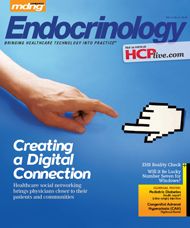HIT Realist: Does the Promise of HITECH Money Have You Thinking about Installing an EHR? Think Again.
Despite what some vendors and politicians may think, for physicians it's not all about the money; even if it were, $44,000 is not nearly enough to cover the costs associated with implementing a full-featured EHR.
Almost from the moment the HITECH Act was passed, various pundits and industry experts have been trying to convince physicians that they should submit to the Act’s mandates and provisions so they can earn the promised $44,000 grants. I disagree with these incentives, because despite what some vendors and politicians may think, for physicians it’s not all about the money; even if it were, $44,000 is not nearly enough to cover the costs associated with implementing a full-featured EHR. Large practices with large Medicare panels may realize significant bonus payments, but smaller practices may find it impossible to make a profit. What is at stake is the autonomy and viability of the small physician office.
I think that there are many good reasons why physicians should think twice about complying with the new mandates, and possibly reconsider their association with Medicare. Medicare often rejects or delays payment on a significant portion of claims due to computer glitches, changes in payment methods, and outright incompetence. Years ago, a whistleblower even admitted to the use of a machine referred to as “Jaws,” which shredded thousands of letters (www.jpands.org/vol8no4/burr.pdf).
The HITECH bonus payments may be difficult to attain. In past PQRI projects, the majority of physicians and offices have failed to receive payments, and those who did received low payments for all of their efforts (http://tinyurl.com/58r7sv; http://tinyurl.com/pssjbx). The bonuses will not be given up front, but rather as rebates based on meeting exact performance parameters. An important hurdle is the required minimum patient panel size (see the HITECH Act for particulars). I question whether CMS/Medicare will provide sufficient and timely feedback, leaving providers unable to correct a submission of data in time. There is also little physicians can do to appeal a CMS ruling that a practice incorrectly submitted sufficient data to be eligible for a full bonus payment (http://tinyurl.com/onncys).
In my practice, Medicare patients can make up 20% of a typical schedule, but since these patients are older and typically more complicated than non-Medicare patients, seeing them can require 30% of my time, expended for about 10% less pay. The workfl ow changes associated with capturing and coding quality data will be significant, and the new administrative burdens will be costly (http://tinyurl.com/qlue6e).
The HITECH Act mandate lacks important details. CMS has not set a specific date or method for issuing bonus payments, and is still modifying the definition of “significant use” of an EHR system. On July 16, 2009 HHS announced that it would not use the Certification Commission for Health Information Technology (CCHIT) as the agency that will determine what qualifies as a “certified EHR”(http://tinyurl.com/m9jle8). Unfortunately, the “ONC certification” scheme is not set up, and it is unknown whether “CCHIT-certified” EHR systems will be grandfathered.
The central core of “significant use” is interoperability, which has yet to be codified by EHR vendors (http://tinyurl.com/o6boht). Many states are trying to set up health information exchanges (HIEs), but most of these centralized exchanges have suffered from major financial difficulties (http://tinyurl.com/pnfppu).
Many current EHR systems have poor user interfaces, which has resulted in a 50% installation failure rate (http://tinyurl.com/cds6uh) and a reported 8% de-installation rate. In some early adoption spots, the de-installation rate has been higher, as is now being seen in Arizona, where physicians pressured to purchase expensive c-EHR systems have found themselves unable to economically survive ownership of their systems (http://tinyurl.com/ndebgp).
The government wants to electronically collect “granular” data on patients, despite growing concerns about patient privacy, as required by HIPAA (http://tinyurl.com/pnujom). The concept of PQRI quality reporting can be used as another weapon to control costs by limiting physician payments (http://tinyurl.com/osohvj). This is on top of the fact that Medicare already reimburses $0.35-$0.50 per $1.00 of charges submitted for patient care, barely covering overhead costs.
It is time for physicians, who still overwhelmingly accept Medicare, to take a close look at the HITECH Act and the potential consequences of continued participation in Medicare. Failure to evaluate your options objectively could be a big mistake.
Alberto Borges, MD, is in private practice and is an associate clinical professor of medicine at the George Washington University in Washington, DC. Check out his website at http://msofficeemrproject.com.
